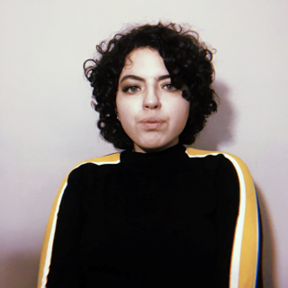Liliana Lule is a lecturer in the Latino/Latina Studies department at the University of Illinois. She has recently joined EJP as an instructor and will be teaching in Danville in Fall of 2023.
EJP’s bi-annual call for course proposals appeared in Liliana Lule’s email inbox in February of 2023. The announcement struck a chord with the questions that animate her academic research, her work as an educator, and her personal life.
Liliana submitted an application, was hired, and is now scheduled to teach LLS (Latina/Latino Studies) 357, Literatures of the Displaced, at Danville Correctional Center in the fall of 2023.
Through the dynamic interplay of an MFA in creative writing from Emerson College and an MA in Latin American and Caribbean Studies from the U of I, Liliana teaches courses on “displacement.” She aims to inspire students to investigate the notion of displacement in a variety of ways. The first of these explores colonial and postcolonial histories that raise questions about what it means to be displaced from one’s culture’s traditional lands. She says, “I tend to start with a postcolonial unit because it situates us temporally in an interesting spot where we are looking historically at things from 500 years ago, but also bringing it into the present. It shows this is the starting point, how can we then connect this to moments in the future and moments in the present.”
Liliana has also invited students to explore the displacements inherent in our current geological age, the Anthropocene, which is distinguished by the level of human impact on the environment. For instance, Liliana asks students to consider the implications of climate change for the destruction of lands and the movements of people.
Finally, Liliana also studies queer displacement, the personal displacement that can occur as a result of being queer in the United States.
Liliana’s areas of academic study dovetail with experiences in her personal life. She is a first-generation high school graduate and a first-generation college student. Her grandparents came to the United States from Mexico in the 1970s.
She says, “I grew up in a very cross-cultural home. I felt, growing up, much more Mexican than I ever did American. So when I think about displacement, I’m thinking of it at all these very different levels, as a college student, as a person of Mexican descent in these predominantly white institutions, as a woman, as a queer person, navigating spaces that have historically been very hostile to people like me…[Latin American Studies has] also been a nice opportunity for me to revisit these themes in a theoretical way and to broaden my own horizons and understandings of what displacement means to me, and how I fit into these larger narratives of displaced peoples.”
This background strengthens Liliana’s investment in imagining new societal structures that don’t rely on punitive measures. “I’m interested in being a part of that change and trying to create new futures that were previously inconceivable. The fact that personal experience coincided with my own studies, coincided with the handful of opportunities I’ve been given to work with these populations, creating this vested interest in confronting that reality.”
Liliana volunteered with the Emerson Prison Initiative while living in Boston, but this fall will be her first time teaching in a carceral space. She said that her thoughts on prisons transformed when she read Angela Davis’s book Are Prisons Obsolete? as an undergraduate student at the University of Wisconsin-Madison. “That was the moment that radicalized me in terms of being passionate about learning more about the carceral state and the prison industrial complex. That academic moment was important, but as someone whose close family members were incarcerated during my youth, that too was really significant. It’s one thing to experience that as a child, but it’s another to see it placed within these larger sociological contexts.”
In discussing her specific plans for teaching classes with EJP, Liliana said she wants to bring together creative writing and Latino/Latina studies to allow students to reconsider their personal experiences with displacement. She says that creative writing and fictional literature can be useful resources in teaching courses on this challenging subject matter: “How do we acknowledge the intersection of lived experiences with the things we’re studying? A creative approach is very helpful because it can be easier to process things that are fictionalized than to say, ‘Hey this is my real life experience.’”

